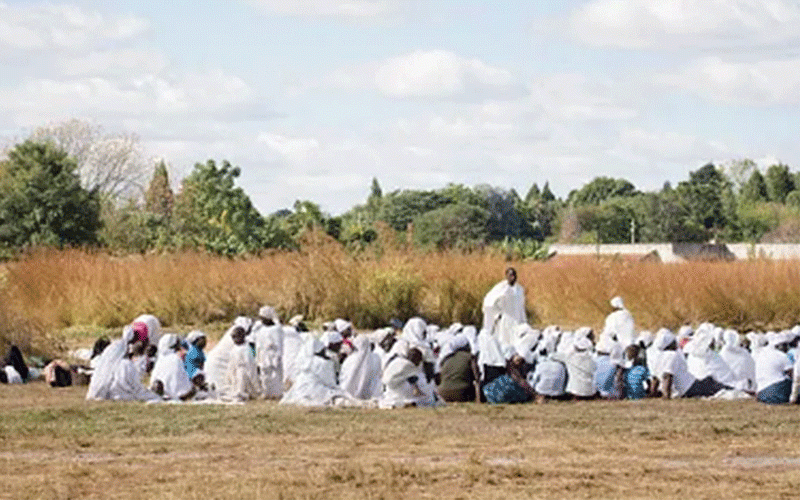
BY LETHOKUHLE NKOMO
It is 41 years after Zimbabwe obtained its independence from colonialism. The right of having a safe home and shelter are some of the privileges some Zimbabweans in other areas are enjoying from the independence, but for Mtuya residents it is a different story.
Residents are still living in houses built with poles and mud, a situation not conducive for a semi-urban set-up as no electricity connectivity is suitable for the houses.
Unstable thatched roof and small metal ablutions are some of the features found in this compound.
The Mtuya area is the oldest township in Dete, Hwange district.
The place is mainly known for accommodating elderly foreign nationals who are descendants from other countries.
Gogo Banda, who is a senior resident of Mtuya, sits outside her pole and mud house basking, wrapped in a Malawian sari, then slowly moves her neatly knitted mat to the wall as she tries to lean against the decorated and cracked walls.
She does not know where she will get her next meal.
- Chamisa under fire over US$120K donation
- Mavhunga puts DeMbare into Chibuku quarterfinals
- Pension funds bet on Cabora Bassa oilfields
- Councils defy govt fire tender directive
Keep Reading
With no one to provide for her, Gogo Banda (78) came to Mtuya as a young girl when her late parents got a job at the railway station.
She has seen all the heyday of Mtuya as she is one of the elderly people living in this area.
The old township was established in the 1960s and has more than 500 houses built initially to accommodate migrant workers who were employed by Rhodesia Railways (now National Railways of Zimbabwe) and Dete Ceramics.
“The houses built here were for a temporary basis, but they became permanent accommodation,” Banda said.
“Those who came after us managed to build better and stronger houses.
“I once worked for a tour operating company as a housekeeper, as I got older I left the job. I now stay with my grandchild since all my children left me for greener pastures in South Africa.
“It’s just me and my 14-year-old grandchild now.”
She is one of the elderly residents of Mtuya, who are finding the going tough due to financial constraints.
“I have financial challenges, my health is deteriorating daily. I am appealing for well-wishers to assist me with food and money for bills,” Banda said.
Dennis Kawengo (72), an Angolan national, says his whole life is now in Zimbabwe as he has found solace in Dete.
“I don’t dream of going back to Angola, my home which I have known since childhood is Zimbabwe,” Kwengo said.
Although the foreign national claims to be comfortable in Mtuya, he expressed concern over the living conditions saying some of the homes collapsed due to excessive rains that have been pounding the area this year.
“Most of us lost everything in our homes due to heavy rains, the roof collapsed, even the walls were shattered.
“Some of the senior citizens were forced to move in with their colleagues,” Kawengo said.
“The toilets in our area are in a bad state, they were built using poles and scrap metals and we are always encountering water shortages.”
Hwange ward 15 councillor Stanley Torima said the state of the Mtuya community showed that it is not known by the responsible authorities.
“I feel that the government does not know that we have a community of elderly foreign nationals in Dete,” Torima said.
“The area has poor drainage, thus the reason for flooding in the suburb.”
He said the elderly in community survived on handouts and blamed the government for not reaching out to this community.
“I sometimes wonder if really the government does not know about Mtuya,” Torima said.
“Probably this was not brought forward to the attention of the Zimbabwe government.
“It’s sad to note that we have 41 years of independence while other members are still living in pole and mud houses in a semi-urban set-up,” he says.
“These elderly have been in Dete for long now making them citizens of Zimbabwe. They are ratepayers to the council like any other residential area, but the state of the houses tells us a different story, they pay for the sewer and road service yet they are not even enjoying these services.”
- This article was originally published by The Citizen Bulletin, a nonprofit news organisation that produces hard-hitting, hyperlocal reporting and analysis for the southwestern region of Matabeleland.










